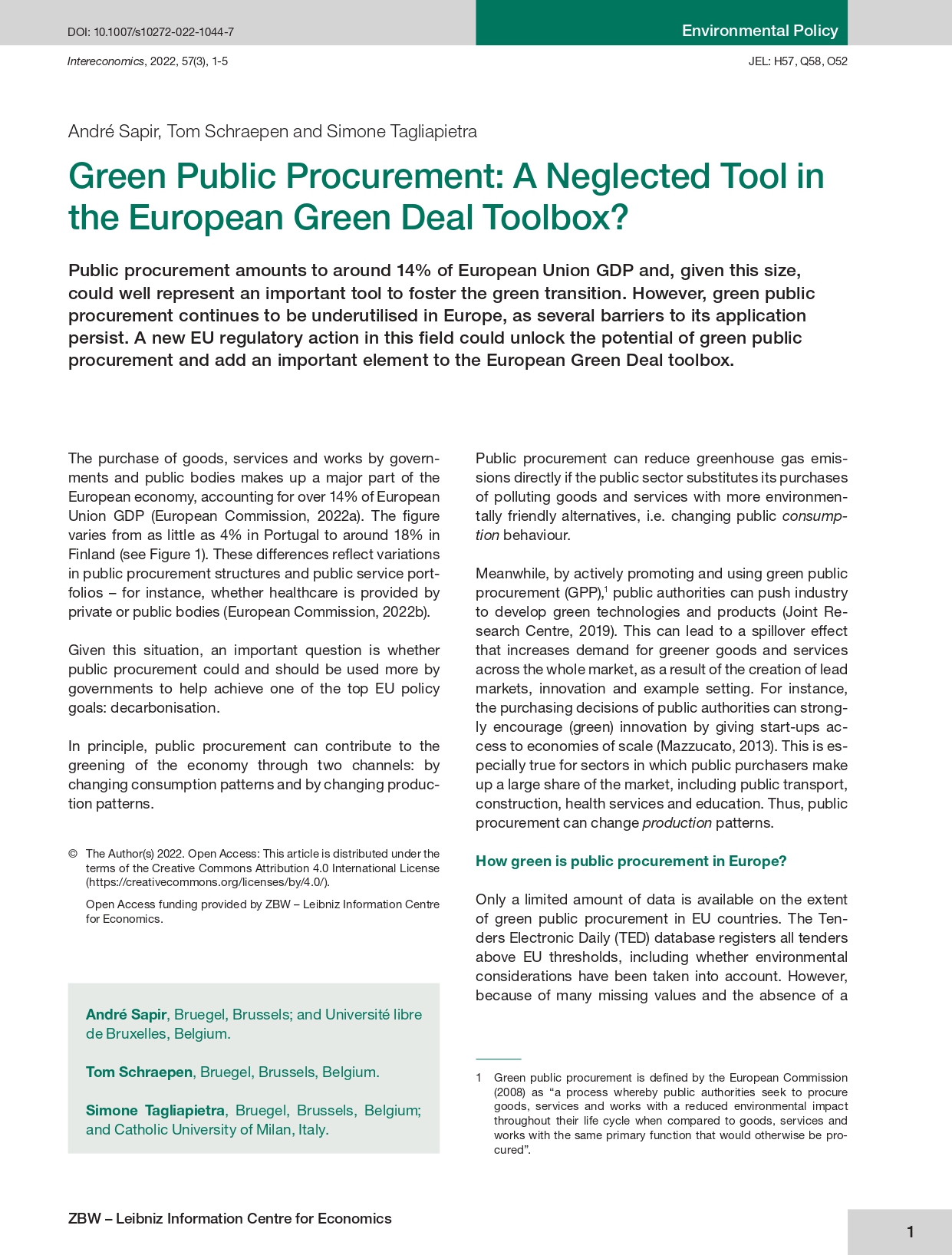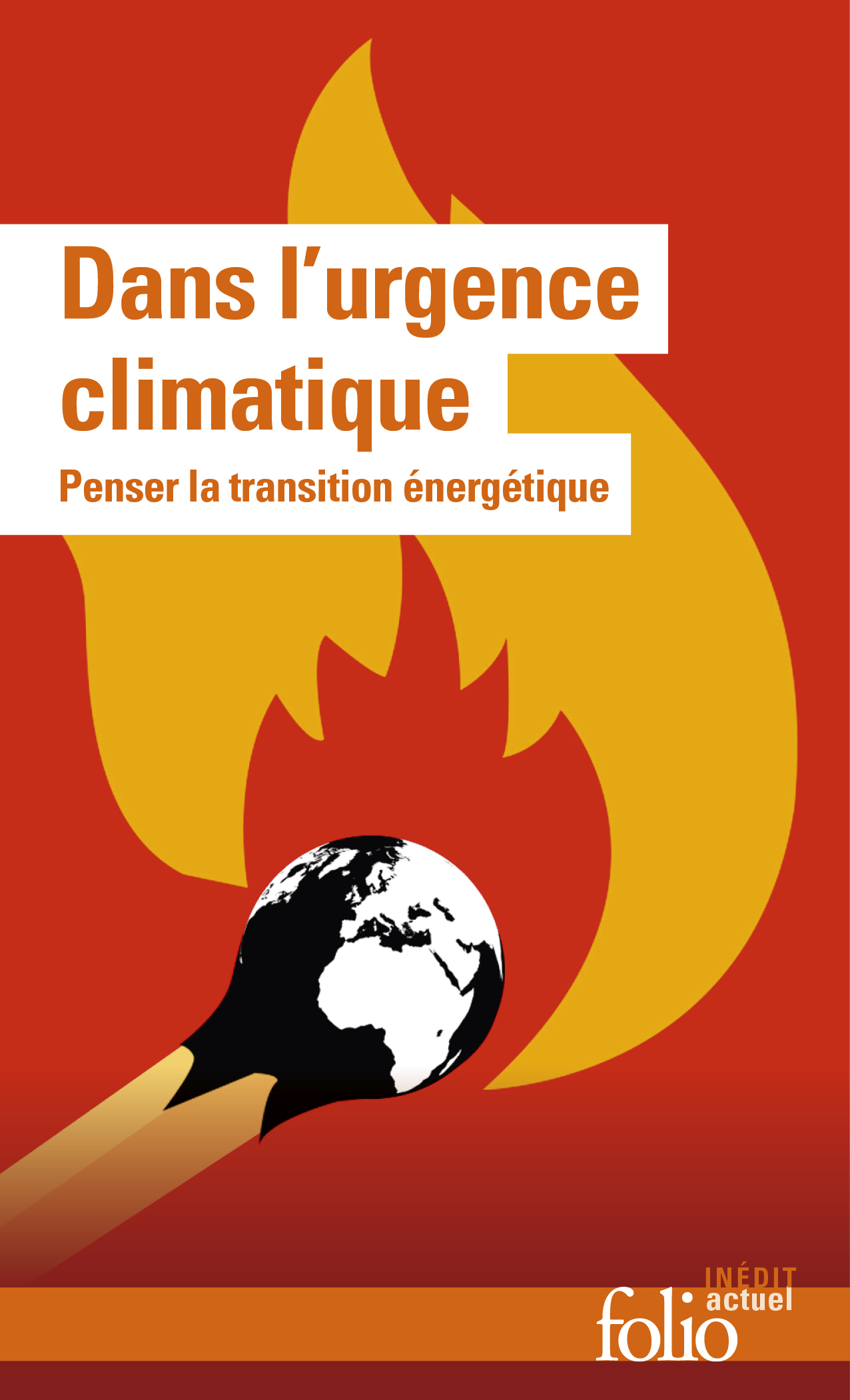Blog Post
Border Carbon Tariffs: Giving Up on Trade to Save the Climate?
Ursula von der Leyen plans to introduce a border carbon tax to avoid that cutting EU carbon emissions forces EU companies to move their activities abroad. But will this tax trigger a conflict between climate preservation and the multilateral trading system, or can trade and climate preservation coexist?
In her political guidelines for the next European Commission, the President-elect, Ursula von der Leyen, has defined an ambitious climate agenda. In her first 100 days in office, she plans to propose a European Green Deal that would include legislation binding the European Union to become carbon neutral by 2050. To reach this objective, she intends to put forward a comprehensive plan to reduce EU carbon emissions by at least 50% already by 2030.
But what chance is there that EU countries will agree this time around to adopt binding targets to reduce, and eventually eliminate, emissions when they failed before?
True, there seems to be now a clear majority of EU citizens in favour of more measures to reduce carbon emissions, but there are still many arguments against stricter EU measures. One such argument is that Europe alone cannot prevent climate change since it accounts for less than 10% of current global CO2 emissions, and this share will decrease if the EU meets its new targets. Other major emitters must also make efforts, and the Commission President-elect was well inspired therefore to announce that the EU will lead international negotiations to increase their level of ambition.
The first-best scenario would be a binding international agreement (replacing or updating the Paris climate agreement) that commits all major carbon emitters to adopt domestic measures (a carbon tax, an emission trading system, or another equivalent scheme) to become carbon-neutral like the EU plans to do by 2050.
But what if some countries refuse to participate in a new agreement? Mrs von der Leyen’s plan is that the EU’s decision to go ahead with its ambitious measures should not be dependent on others agreeing to do the same. Instead, she said that in order “to ensure our companies can compete on a level playing field, I will introduce a Carbon Border Tax to avoid carbon leakage,” i.e. the shifting of carbon-intensive production to countries outside the EU. Such a tax scheme is often referred to as a “border carbon adjustment” (BCA) since it makes up for the difference between the domestic carbon tax and those levied in countries with lower (or no) carbon taxes.
The idea that ambitious domestic measures to eliminate carbon emissions should be accompanied by a BCA system to prevent carbon leakage is not unique to Europe, nor to politicians. It was recently endorsed by more than three thousand U.S. economists, including 27 Nobel laureates, 15 Chairs of the Council of Economic Advisers and all the four former Chairs of the Federal Reserve in a statement on carbon dividends.
On climate grounds, an EU carbon border tax could potentially be significant for three reasons. First, it could reduce emissions outside the EU since the fraction of emission-intensive associated with exports to the EU would be subject to the tax, and therefore eliminate leakage. Second, given the size of the EU market (roughly the same as the United States or China), it could be a powerful incentive for non-EU countries to participate in multilateral negotiations and reach a first-best a global green deal. Third, it could pre-empt the barrage of criticism inside the EU that would kill the European Green Deal for putting an unreasonable burden on EU companies and workers in the name of climate change.
But what about on trade grounds? Free traders and the trading community at large have traditionally been sceptical about BCAs. So, should we worry that their introduction by the EU “will likely trigger a conflict between climate preservation and free trade”?
Border carbon taxes are unilaterally decided trade barriers. As such, they could be misused for protectionist reasons and undermine the multilateral trading system. In the worst case, they might simply jeopardise trade and not even help the climate.
But, as we discussed in an earlier contribution, if correctly designed, BCAs could improve climate without endangering the multilateral trading system. This will not be easy, but it is possible provided the following conditions are met.
First, the EU and other countries considering the introduction of BCAs should be mindful that special interests may seize the opportunity to enhance their protectionist agendas. It is crucial therefore that the system is designed to minimise the risk of protectionist abuse. Preventing protectionism is important not only from a national economic perspective but also from a climate perspective since wide-spread protectionism might lead to inefficient production patterns. Avoiding protectionism will not be an easy task, but there is already useful work that has identified some of the desirable features of a BCA regime from this perspective.
Second, it is crucial that the EU’s BCA be WTO-compatible. This would ideally be addressed through negotiations in the WTO about permissible BCAs. The current US Administration, and some other governments may not be interested in participating in such negotiations now. However, the EU and a group of like-minded WTO members should develop a proposal for a WTO agreement, which may eventually be adopted by all WTO members.
Third, the EU’s climate policies need to be consistent across industries and activities in order to be internationally credible (and perhaps also WTO legal). For instance, the EU cannot make exceptions for certain emission-intensive domestic industries and simultaneously apply BCAs for products that are largely produced abroad.
Finally, a unilateral decision by the EU to introduce BCAs can only be the counterpart of ambitious unilateral measures by the European Union to meet the objective of being climate neutral by 2050. Otherwise, the game would not be worth the candle.
Hence, in our view there is no inherent conflict between climate preservation and safeguarding the rules-based multilateral trading system, provided one avoids these four conditions are fulfilled.
Republishing and referencing
Bruegel considers itself a public good and takes no institutional standpoint. Anyone is free to republish and/or quote this post without prior consent. Please provide a full reference, clearly stating Bruegel and the relevant author as the source, and include a prominent hyperlink to the original post.










